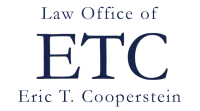Discipline Defense
You may have landed on this page because you’ve recently received an ethics complaint or you’ve been dealing with one for a while. You may be feeling quite a range of emotions: Anxiety. Anger. Frustration. Fear.
You’re not alone. Many ethics complaints come from difficult clients with bad cases. Others come from oversights or mistakes of judgment. There are many steps in the lawyer discipline process. That’s good because it means lawyers are not disciplined before they have had one or more opportunities to respond. But it also means that the process can be confusing and drag out over many months.
Lawyers hire an ethics lawyer because:
- They do not know how the Rules of Professional Conduct apply to their case or what the best arguments are.
- They do not know whether their case will result in discipline, because so much of the discipline system is private.
- They are so emotional about the complaint that they cannot respond dispassionately.
- They are worried they will not be able to bring themselves to respond at all.
- They thought the complaint was simple and would be dismissed but now are being asked follow-up questions that suggest there is a problem.
- They have troubling personal issues that they need to discuss in confidence.
Fees
I usually bill hourly for my time. Typically, I do not begin representing a lawyer in defending an ethics complaint until I receive an initial retainer, unless you are using the “supplemental payments coverage” in your malpractice policy (usually, your deductible does not apply but there is a cap on the total fees that the insurer will pay). In some situations, it may be possible to pay part of the retainer up front if you agree to automatic monthly credit card payments to pay the rest of the retainer. We will discuss whether that is appropriate for your situation.
In about 80% of my cases that result in dismissal, private admonition, or private probation, the total fees are between $3,000 and $6,000, with simpler and more complicated cases falling on either side of that range. Public discipline cases almost always cost more but no lawyer should go through a public discipline case without counsel.
What will happen after I hire you?
- I will notify the investigator or OLPR staff attorney that I am representing you. From that point forward, all communications will come through me. No more “Private and Confidential” envelopes from OLPR will come to your office or home.
- If an extension of time to respond is needed, I will request an extension.
- I will gather documents from you, such as all or part of your client file.
- I will meet with you by video conference or by phone to gather additional facts about your claim.
- I will draft a response to either the complaint or requests for information that are outstanding and give you the opportunity to review the response before I submit it.
- I will let you know my initial assessment of your case and whether you are at any risk of being disciplined.
Frequently Asked Questions
- What is the District Ethics Committee (DEC)?
The Office of Lawyers Professional Responsibility (OLPR) does not investigate most complaints using its own staff. Instead, most complaints that require investigation are referred out to the local bar associations, each of which has an ethics committee. Two-thirds of the volunteers are attorneys; the other one-third are non-lawyers. - Won’t the ethics committee think that I must have done something wrong if I had to hire an attorney to defend me?
Not only are they unlikely to think that, but the investigators and members of ethics committees routinely tell me that they get clearer responses and hearings proceed more smoothly when a lawyer has counsel. A Supreme Court justice once told me that lawyers should “never, ever” represent themselves because they always make it worse. - Will my malpractice carrier cover the cost of defending an ethics complaint?
Some carriers, such as Minnesota Lawyers Mutual, provide “supplemental benefits” coverage of up to $10,000 for attorneys fees (per firm, per policy year) for defending ethics complaints. Check your policy or call your claims representative. - How long will this process take?
That’s difficult to predict. Most non-meritorious complaints are resolved within three to four months. If the issues are complicated or if there is a recommendation for a private admonition or more severe discipline, the process will likely take more than six months. It is not unusual for public discipline cases to last eighteen months to two years. - A private admonition – that’s just like a speeding ticket, right?
Most lawyers will fight hard to keep an unblemished discipline record. While a single private admonition by itself will not likely interfere with a lawyer’s career, it may result in subsequent ethics violations being treated more seriously by the Director’s Office. Sometimes the nature of a lawyer’s error makes a private admonition unavoidable but lawyers should not acquiesce too quickly or treat the process cavalierly.
